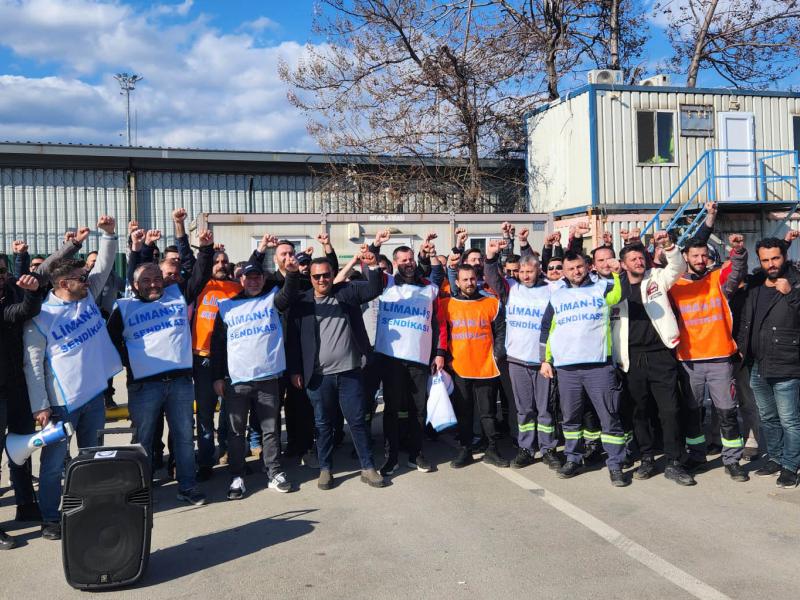Seafarers’ unions have won landmark commitments to a Just Transition for the world’s maritime workforce as part of the International Maritime Organization’s decision to adopt its Revised Greenhouse Gas Reduction Strategy.
Under the new strategy, the IMO will need to review seafarer training instruments and guidance, as well as being tasked with ensuring that all new zero, or near-zero, emissions technologies are safe for maritime workers and all affected communities.
The International Transport Workers’ Federation (ITF) has welcomed the news as a major win for workers.
“This is an historic recognition by the IMO of the importance of seafarers, and of their health and safety needs,” said ITF Seafarers’ Section chair, Dave Heindel.
“With this Revised Strategy, the IMO is saying that seafarers have a critical role to play in shipping meeting the decarbonisation challenge,” said Heindel.
“The IMO has acknowledged it will only be possible to decarbonise shipping with the active efforts of a well-trained, and well-protected maritime workforce, and that is absolutely correct.”
“Dealing with the climate crisis fundamentally means engaging the workforce, a central pillar of the ‘human element’ the IMO has focused on in recent years. We are very pleased to see the centrality of workers explicitly recognised in this strategy, which will have far-reaching impacts for years to come,” said the Seafarers’ Section chair.

The adoption of the Revised Greenhouse Gas Reduction Strategy also means the introduction of updated targets to cut overall emissions in the shipping sector. They chart the shipping sector to reach net zero ‘by or around 2050’, with interim targets of at least 20% (striving for 30%) by 2030, and 70% (striving for 80%) by 2040.
ITF General Secretary Stephen Cotton said full implementation of these targets is crucial, otherwise shipping risks falling behind the progress being made in other transport sectors.
“The new targets show increased ambition, and we welcome that,” he said. “But even these new targets don’t measure up to the Paris Agreement and its temperature goals. Every sector has to be aiming for Paris, to climate-proof our jobs and our planet. So its crucial that that these new goals are fully delivered.”
Researchers have estimated the new IMO strategy requires a per ship pollution reduction by up to 60% by 2030, “and as much as 91% by 2040”. “The days of fossil-fuelled ships are numbered,” they predict.
Not without workers. And not without workers having necessary backing from governments and employers to make the transition successful, for example through upskilling, said ITF’s Cotton.
It now fell to IMO member states, and the wider maritime industry, to take forward the Strategy’s implementation measures in a fair way, keeping seafarers and communities top of mind, he said.
“The next decade will be pivotal. All parties at the IMO need to be working urgently and collaboratively on the full range of measures laid out in the Revised Strategy. Through the Maritime Just Transition Task Force, we have developed an action plan on Just Transition. The agreement at the IMO is another important step forward.”

What is a ‘Just Transition’?
Just Transition calls for workers and their communities to be treated humanely during periods of technological and economic change. It is also about supporting these same workers and communities to play an active role in shaping and leading these changes.
While some of the elements of what we would recognize as ‘just transition’ today have been happening in different places and in different industrial contexts in recent decades, Just Transition is now a core tenet of global climate change policy and has a specific meaning.
The 2015 Paris Agreement on climate action recognised ‘the imperatives of a just transition of the workforce and the creation of decent and quality jobs’.
Just Transition was defined in more detail by the United Nations’ tripartite labor and employment body, the ILO (International Labour Organization) in 2015. The ILO defines a Just Transition as:
“greening the economy in a way that is as fair and inclusive as possible to everyone concerned, creating decent work opportunities and leaving no one behind.”
Just Transition is an approach to economic and technological change built on social dialogue, stakeholder engagement and a universal respect for fundamental labor rights and other human rights.
You can learn more about how seafarers and their unions are advocating for a Maritime Just Transition here.


